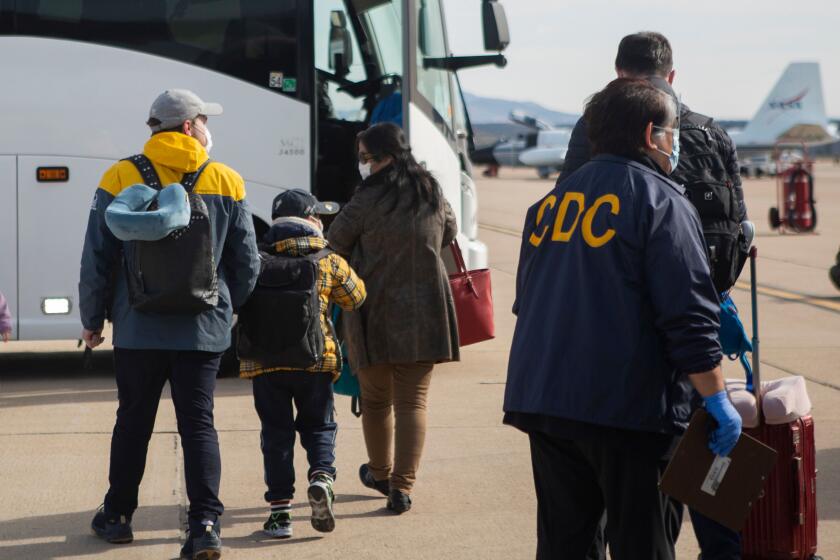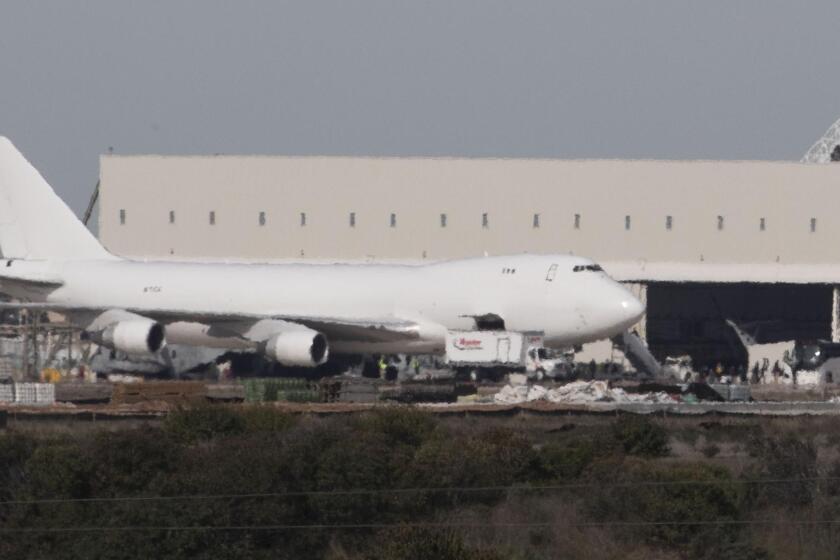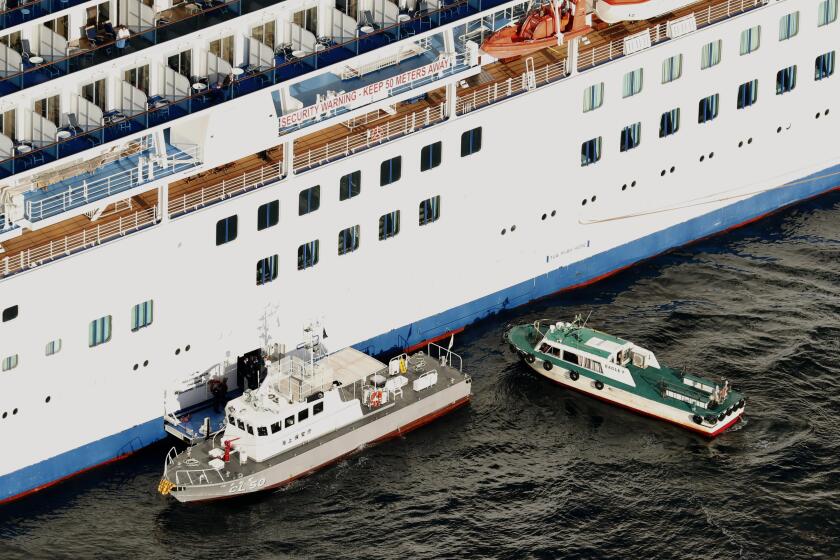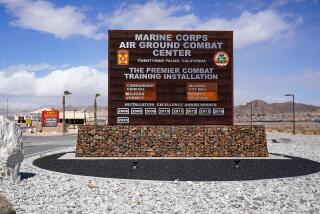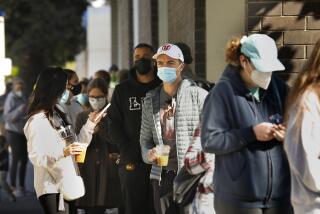Evacuees celebrate as coronavirus quarantine ends at Riverside County military base
- Share via
After flying halfway around the world to flee a deadly viral outbreak and then spending two weeks quarantined at a California military base, a group of Americans evacuated from China couldn’t help but celebrate Tuesday morning.
Following a series of final screenings, all 195 Americans quarantined amid the coronavirus outbreak were cleared to leave March Air Reserve Base in Riverside County, where they had been confined the last 14 days.
Everyone in the group, which arrived at the base aboard a charter plane on Jan. 29, tested negative for the virus in the final screenings shortly before 9:30 a.m. The evacuees, which included American diplomats who had fled Wuhan, China, with their families, were then free to leave.
But before goodbyes were said, a group photo was in order. Like students flinging graduation caps, the Americans triumphantly tossed their face masks into the air.
Jamie Fouss, the U.S. consul general in Wuhan, broke down in tears while describing how his fellow evacuees, bonded by a journey that began aboard a cargo aircraft in China, parted amid hugs and a promise to reunite.
“Today, as we took off our masks and were given the clean bill of health, we realized we had gone through the experience together. We made good friends. We kept ourselves busy” with Zumba and art classes, school for children on base and trivia games. “We tried to have as normal a life as we could,” he said.
Two days after the travelers arrived from Wuhan, the U.S. government issued a mandatory quarantine order — the first in more than 50 years — which kept them on the base for 14 days, the incubation period of the virus.
“The passengers are very appreciative of the support and services but excited to get home and get back to their normal lives,” said Kim Saruwatari, director of public health for Riverside County. The scene was a happy one, she said.
Saruwatari said county health officials helped arrange transportation to local airports where travelers would continue to their final destinations.
Two people who were transported to the base from Los Angeles International Airport and were not part of the larger group will remain on base until at least Sunday, when their quarantines are scheduled to end, officials said.
After a trip from Wuhan, China, lasting 37 hours, 167 evacuees are living at the Marine Corps Air Station Miramar in San Diego County.
During a news conference Tuesday, health officials emphasized that no one released from the quarantine poses a risk to the larger community.
“I don’t want someone to be attacked, ostracized or outed for being part of this testing group,” said Cameron Kaiser, public health officer for Riverside County.
There have been 13 confirmed U.S. cases of coronavirus — what the World Health Organization has officially named COVID-19 — including seven in California. Most recently, an evacuee in San Diego County who has been quarantined with 231 others at Marine Corps Air Station Miramar tested positive for the virus. In Riverside County, none of those quarantined acquired the pathogen, although two children developed fevers during the quarantine, health records show.
The quarantines are one of the few tools available to health workers trying to contain the spreading virus because a vaccine scientists are working on is not expected to be available for 18 months. But the actions have stirred panic and the spread of misinformation. Fear of contracting the virus had led to “unacceptable” treatment of some who work at the Riverside County base, Kaiser said in an open letter to the community Monday.
The travelers from China are subject to a 14-day federal quarantine (the incubation period for the coronavirus) under orders from the CDC.
Workers at March Air Reserve Base and their families have been verbally attacked in person and on social media by people fearing their proximity to those under quarantine at the base, officials said.
“Please understand that people on and off the base are not at increased risk for exposure to the new virus, and we don’t restrict people who don’t actually pose any risk,” said Kaiser, who noted that some base workers were accosted while in uniform.
“They have had no contact with the evacuees, whose area is fully separated from base personnel. You do not need to exclude household or family members of [base] personnel, nor do you need to require them to obtain unnecessary ‘clearance letters’ from a physician or health authority. They pose no greater risk than anyone else.”
Officials reiterated Kaiser’s points Tuesday and said that discrimination has become problematic over the course of the quarantine.
“We are doing everything we can to educate our evacuees, provide them with information on how to access mental health services should they be needed, and educate the communities,” said Rear Adm. Nancy Knight of the Centers for Disease Control and Prevention. “These people do not have novel coronavirus.”
Hundreds of evacuees in the past two weeks were flown to military bases in California, Texas and Nebraska, where many are still quarantined.
Carl Goldman records online their experiences on the quarantined ship: ‘My wife’s reaction to the toilet paper was like giving her a diamond ring.’
The Associated Press contributed to this report.
More to Read
Sign up for Essential California
The most important California stories and recommendations in your inbox every morning.
You may occasionally receive promotional content from the Los Angeles Times.
